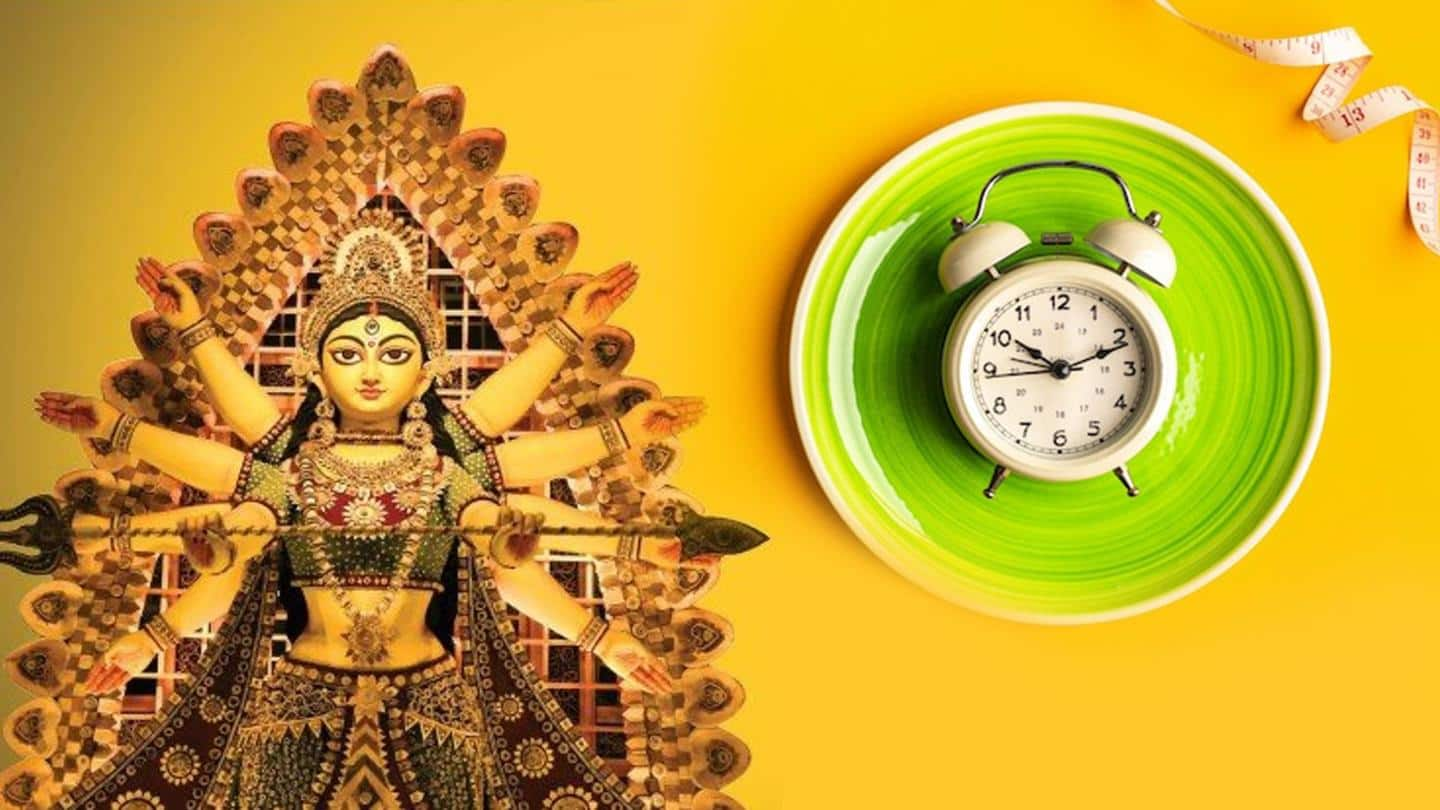
Navratri 2022: The ritual of fasting and its health benefits
What's the story
This year the nine-day festival of Navratri, beginning today is scheduled to end on October 5. As always, devotees in the northern part of India observe a ritualistic fast. However, have you ever wondered why is the Indian culture so inclined toward fasting? And how does fasting help our body even though we refrain from eating what we consume daily? Let's find out.
Fasting more than feasting
Why is the ritual of fasting common in India?
Observing a fast is a common sight in India during festivals. Aakash Bansal, founder, and certified diet and fitness expert at FormFit explains why. He says, "As per Ayurveda, fasting helps our organs to relax and the body to cleanse its mechanisms. Additionally, it is not an obligation, but a spiritual way of purifying our system and seeking the deity's blessings."
Seasonal changes
The scientific relevance of observing a fast on Navratri
Fasting during Navratri is an ancient tradition. However, not many know its scientific relevance and importance. "A change in season demands a stronger and cleaner body, hence fasting during Navratri prepares the body for the seasonal change. This is the reason it is celebrated twice a year - once at the beginning of summer and then at the beginning of winter," clarifies Bansal.
Benefits of fasting
"Fasting decreases inflammation, improves blood sugar levels"
Besides helping cleanse our system and relax our organs, fasting has some other long-term health benefits too that make it a worthy practice. "Fasting is a practice that has been associated with a wide array of potential health benefits including decreased inflammation, as well as improved blood sugar control, heart health, and brain function," says Aakash Bansal.
Let's understand
Why are non-vegetarian foods, onion, and garlic not consumed?
While some people fast throughout the day, others refrain from eating certain food items that they otherwise consume on a day-to-day basis. Aakash says, "It's recommended to avoid certain foods like non-vegetarian dishes, onions, and garlic when fasting because more time and energy is spent by the body digesting them and lesser energy is available to perform other functions."
Prep your meals
What are the ideal foods to be eaten during Navratri?
Although there are many things one can savor, Aakash urges us to "be mindful of what you are eating, how much you are eating, and when you are eating." "Include certain protein-rich foods such as paneer, curd, and buttermilk in every meal. Also try salads, fruit chaat, smoothies, etc. Do include some good fats in your meals like nuts and seeds," he adds.